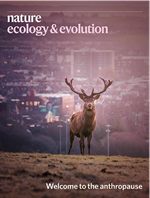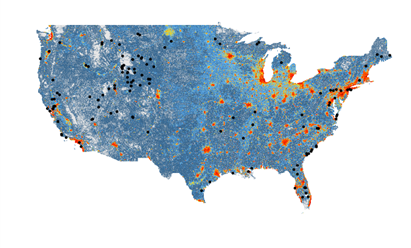
An article published in Nature Ecology & Evolution and co-authored by MPYC co-director Walter Jetz investigates how COVID-19 lockdown provides insight into the effects of human activity on wildlife and coined a new term: ‘anthropause’. Anthropause refers to the global slowing of human activities, such as travel, during lockdown and was chosen as one of the words of the year in 2020 by Oxford dictionary. The commentary was featured on the cover of Nature Ecology & Evolution and is to date, the most accessed article in this journal with over 82,000 accesses. Since then, the MPYC core team composed of Ruth Oliver, Diego Ellis-Soto, Brett Jesmer, and Walter Jetz has been actively working on expanding concepts and empirical studies to elucidate the effect of COVID-19 on wildlife.

Alongside partners from the International Biologging Society, the team has applied for United Nations Sponsorship and is actively involved in collaborative projects with dozens of other partner organizations. MPYC is leading both conceptual and empirical pieces, particularly a perspective piece highlighting the complexities of incorporating static and dynamic human datasets (such as land cover and human mobility) into human-wildlife studies. We are testing these new concepts through an empirical study investigating changes in the behavior of terrestrial birds and mammals across the United States during the Anthropause. This has required collaborating with wildlife ecologists, remote sensing experts, and human geographers. We are currently exploring changes in behavior in a large number of species including ravens in Yellowstone, Cougars in San Francisco, elk in Utah, deer in urban Staten Island, raptors flying across the west coast, and many more. We will present some of these preliminary findings at the International Biologging Conference in October of 2021. Stay tuned!
Read the article in full here!